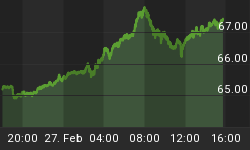Five NGOs that work for Indigenous rights in Venezuela issued a statement asking authorities to take immediate action against illegal miners operating in the Venezuelan and Brazilian Amazon, as they are likely to spread covid-19 in the region.
Endorsed by the organizations Orpia, Oipus, Kuyunu, Omida and the Socioenvironmental Working Group of the Wataniba Amazon, the release rings the alarm bell following the death of a 15-year-old boy from the Yanomami tribe. The young man succumbed to covid-19 in the Brazilian state of Roraima, which shares a border with the southeastern Venezuelan states of Bolívar and Amazonas.
According to the news agency Amazonia Real, Brazil’s Special Secretariat for Indigenous Health confirmed that the youth showed covid-19 symptoms for 21 days before he was able to be properly diagnosed and receive any treatment. He died from complications associated with the infection and from having previously suffered from malaria, anaemia and malnutrition.
The teenager hailed from the region of the Uraricoera river, an area known for hosting garimpeiro or artisanal mining activities.
“Similar to thousands of Yanomami, whose traditional territory extends -regardless of boundaries- between Venezuela and Brazil, the youth had a debilitated immune system,” the NGOs’ communiqué reads. “Most Indigenous peoples in our country experience the same reality.”
According to the group, it is widely known that illegal miners have been introducing diseases in Indigenous communities for years. Given their state of destitution and the fact that there is a generalized lack of medical treatments in Venezuela, First Nations are not prepared to deal with the threat of covid-19.
Ill-prepared for years
Two years ago, almost 90% of hospitals in Venezuela reported shortages in medications, 79% shortages in surgical supplies and 79% water shortages. This situation has not improved and the numbers are much worse in remote communities.
The issue with water is particularly worrisome, the NGOs’ document states. The mercury used by illegal miners to pan gold from Amazonian rivers is leaving entire towns without access to clean water in a moment when washing hands is the most important individual action to prevent the spread of the novel coronavirus.
“We issued a report back in 2019 after receiving information from the Yanomami Hutukara Association, which operates in Venezuela’s Amazonas state and Brazil’s Roraima state. They said that their land was being invaded by some 20,000 garimpeiros (illegal miners) who were extracting gold from their traditional territories,” the Socioenvironmental Working Group of the Wataniba Amazon said.
In the view of the non-governmental organization, efforts put forward by the Indigenous communities themselves, in terms of demanding its members to isolate, may be futile given the transient nature of illegal miners.
“The fact that they are moving back and forth between towns and mineral deposits hinders the isolation demands put forward by First Nations before the authorities,” the communiqué reads. “For decades now, particularly since the boom of artisanal mining that started in the 1980s, Indigenous peoples have been suffering epidemics such as measles, tuberculosis and malaria.”
The NGOs fear the same pattern is going to emerge with covid-19.
“To the vulnerability imposed by mining, we have to add the fact that the Yanomami people are very mobile themselves due to their binational nature. Normally, they move along the three corridors of the Alto Ocamo, the Parima mountain range and the Alto Siapa,” the release states. “This is why we respectfully demand that the Venezuelan authorities take urgent measures to guarantee their health with the implementation of actions that lead to the total and temporary isolation of these communities and the mandatory exit of illegal miners. Only this will prevent a new genocide of the Yanomami people.”
The likelihood of positive action
How likely is the Nicolás Maduro regime to take action on the NGOs’ call is uncertain.
For years now, Maduro and others linked to his administration have been benefiting from artisanal mining operations in an area called the Orinoco Mining Arc. They export gold in an effort to bypass economic sanctions imposed by Washington to Venezuelan oil sales.
The lucrative business is supported, according to human rights organization Provea, by criminal groups known as “unions,” who collude with authorities and use violent tactics to take control of entire communities and of their mineral resources.
The business is so profitable that just back in January the president of the National Assembly, Juan Guaidó, who is recognized by the US, the EU and more than 50 other countries as Venezuela’s legitimate president, urged the European Union to officially label as “blood gold” the precious metal informally mined in the country’s southern jungles.
The request was aimed at increasing pressure on Maduro.
By Mining.com
More Top Reads From Safehaven.com:
















